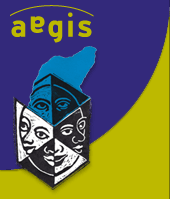 |
| Home |
| Theme |
| Programme |
| Panels and paper abstracts |
| Call for papers |
| Important dates |
| Conference details |
| How to get there |
| Sponsors |
| Contact |
 |
11 - 14 July 2007
African Studies Centre, Leiden, The Netherlands
![]()
Conference theme
African Alternatives: Initiative and Creativity beyond Current Constraints
At the beginning of the 21st century, Africa is facing a number of predicaments. Afro-pessimist paradigms focus on failing states, war and famine and Africa is lagging still further behind in the world economy. While China and India are rapidly increasing their share of world trade, the question is how African countries can find a niche in an ever more competitive world market. The conference will focus on the constraints that are restricting Africa’s development and growth, and on new initiatives coming from African entrepreneurial activities, trade, self-help organizations, associational life, politics and religion at grassroots level.
Exploring initiative and creativity is not limited to an understanding of the coping strategies of those faced with deteriorating socio-economic and political circumstances. The conference aspires to move a step further by challenging prevailing development paradigms. It will consider the nature of current constraints (internal and external to Africa), studies of coping strategies, and initiatives offering alternatives to the prevailing paradigms.
We hope to move away from the perspective of African ‘victimhood’ by stressing ‘African agency’. Originating in nineteenth-century philosophical discourse, the theme of ‘Structure and Agency’ has been adopted in many academic disciplines. The conference also allows for a development-relevant perspective, with development being understood as a dynamic process but not necessarily following a linear model. African trajectories of development do not need to copy Western or Eastern models and the conference will look for possible alternative trajectories. We plan to include empirical case studies of initiatives and ventures in Africa that present alternatives to current development discourses and encourage a theoretical debate on the representation of African voices and visions.
An underlying question is how far African initiatives produce viable alternatives to current development paradigms. If development and progress are not synonymous and ‘development’ is an overly Western-determined concept and project, what alternative ideas of ‘progress’ can be produced by Africans themselves?